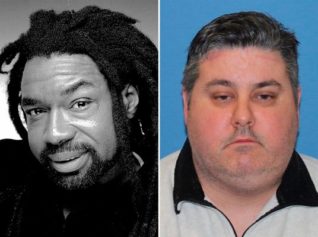
Jerome Murdough had been arrested for trespassing last month when he was found curled up in an enclosed stairwell on the roof of a Harlem public housing project, looking for a warm place to sleep. In a cell at Rikers Island, he met his demise.
Murdough apparently was on anti-psychotic and anti-seizure medication, which may have made him more vulnerable to heat. He failed to open a small vent in his cell, as other inmates did, to let in cool air, officials said.
“He basically baked to death,” one official told the Associated Press, which broke the story.
Advocates for mentally ill inmates in New York told the AP that Murdough’s death illustrates the failure of the city’s justice system on almost every level. Officers arrested Murdough instead of finding him help; a judge set his bail at a prohibitive $2,500; authorities failed to supervise him closely in a unit that is supposed to be reserved for inmates with mental illnesses.
An internal investigation will look into all circumstances of Murdough’s death, “including issues of staff performance and the adequacy of procedures,” according to Department of Correction spokesman Robin Campbell. Campbell conceded to the AP that the temperature in Murdough’s cell was “unusually high” and that action has been taken to fix mechanical problems to ensure safe temperatures, “particularly in areas housing vulnerable inmates.”
Just as outrageously, Murdough’s 75-year-old mother, Alma Murdough, said she did not learn of her son’s death until she was contacted by the AP nearly a month after he died. But the Department of Corrections claims it told his public defender of the death three days after he was found.
His mother called him “a very lovely, caring guy.” She said he had bipolar disorder and schizophrenia and that she had not seen him in about three years.
“He had beer problems. Drinking beer. That was his downfall,” she said. “Other than that, he was a very nice guy. He’d give you the shirt off his back.”
Murdough grew up in Queens and joined the Marine Corps right out of high school. He did at least one stint in Okinawa, Japan, but had mental and alcohol problems after he returned. According to the AP he would often disappear for months at a time, finding warmth in hospitals, shelters and the streets.
“When he wanted to venture off, we let him, we allowed him to come and go,” recalled his sister, Cheryl Warner. “He always came back.”
After he was locked alone into his 6-by-10 cinderblock cell at about 10:30 p.m. on Feb. 14, a week after his arrest, he was supposed to be checked every 15 minutes as part of suicide watch for the mentally ill. But he wasn’t discovered until four hours later, slumped over in his bed and already dead. His internal body temperature and the temperature in the cell were at least 100 degrees—but could have been higher before he was found because the cell had been closed for several hours, officials said.
“So Mr. Murdough violated the trespass law. So he suffered the consequences by going to jail,” said Jennifer J. Parish, an attorney at the New York-based Urban Justice Center’s Mental Health Project. “But the jail system committed more serious harm to him. And the question is, ‘Will they ever be held responsible?'”
“We want justice for what was done,” Wanda Mehala, another of his sisters, told the AP. “He wasn’t just some old homeless person on the street. He was loved. He had a life. He had a family. He had feelings.”


